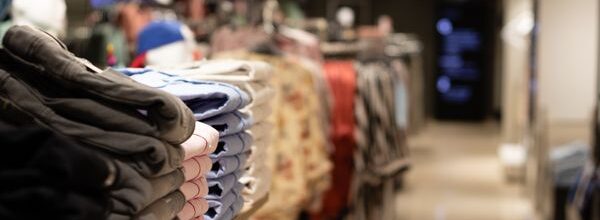Cómo Ganar Un Caso De Lesiones Contra Una Gran Tienda Minorista
Tennessee tiene muchas grandes tiendas minoristas diferentes que operan en el estado. Tiendas como Target, Costco, Walmart, BJs Wholesale Club, y Sam’s Club todos compiten para ofrecer a los clientes muchos productos diferentes. Si bien competir por los clientes puede ser algo bueno, estos mismos clientes se lesionan en las tiendas minoristas todo el tiempo. Los clientes pueden resbalarse o tropezar debido a una condición peligrosa, o las acciones negligentes de un empleado pueden causar lesiones a un cliente.
Tiendas minoristas como Target tienen el deber de mantener las instalaciones en condiciones seguras para sus clientes. Sin embargo, el hecho de que un cliente se lesione en su propiedad no significa que el negocio minorista sea automáticamente responsable. Este tipo de lesiones forman parte de un área de la ley denominada responsabilidad de las instalaciones.

Explicación de la ley de responsabilidad civil de Tennessee
Cuando se lesiona en una tienda minorista de Tennessee como Walmart, debe ganar según los requisitos legales de responsabilidad civil de Tennessee: Los elementos legales que debe probar son:
- El minorista le debe un deber de cuidado
- El minorista incumplió ese deber
- Las acciones o inacciones del minorista le causaron lesiones
- Usted sufrió daños legales como resultado
La tienda minorista le debe un deber de cuidado
Si bien empresas como Costco no son aseguradoras de la seguridad de sus clientes, están obligadas a tener el debido cuidado en todas las circunstancias. Smith v. Inman Realty Co., 846 S.W.2d 819, 822 (Tenn.App.1992).
“En los casos que involucran responsabilidad por las instalaciones, el propietario de las mismas tiene el deber de ejercer un cuidado razonable en las circunstancias para evitar lesiones a las personas que se encuentren legalmente en las instalaciones. Eaton v. McLain, 891 S.W.2d 587, 593-94 (Tenn.1994). Este deber se basa en el supuesto de que el propietario tiene un conocimiento superior de cualquier condición peligrosa que pueda existir en la propiedad. Ver, e.g., Kendall Oil Co. v. Payne, 41 Tenn.App. 201, 293 S.W.2d 40, 42 (1955)El deber incluye la obligación del propietario de mantener las instalaciones en condiciones razonablemente seguras y de eliminar o advertir sobre condiciones peligrosas latentes u ocultas de las que el propietario tenga conocimiento o deba tener conocimiento mediante el ejercicio de una diligencia razonable. Eaton, 891 S.W.2d at 593-94.
El minorista incumplió su deber de cuidado.
Para ganar en este elemento contra una gran tienda minorista como Sam’s Club, una condición peligrosa o defectuosa debe ser (1) causada o creada por el propietario, operador o su agente, o (2) si la condición fue creada por alguien que no sea el propietario, operador o su agente, que el propietario haya tenido conocimiento real o constructivo de que la condición existía antes del accidente. Blair v. West Town Mall, 130 S.W.3d 761, 764 (Tenn. 2004). “Notificación real” se define como “conocimiento de hechos y circunstancias suficientemente pertinentes en carácter para permitir que personas razonablemente cautelosas y prudentes investiguen y determinen los hechos finales”. Kirby v. Macon Cnty., 892 S.W.2d 403, 409 (Tenn. 1994).
“Notificación constructiva” se define como “‘información o conocimiento de un hecho imputado por ley a una persona (aunque en realidad no lo tenga) porque pudo haber descubierto el hecho con la debida diligencia, y su situación era tal que le imponía el deber de investigarlo’”. Hawks v. City of Westmoreland, 960 S.W.2d 10, 15 (Tenn. 1997)(quoting Kirby, 892 S.W.2d at 409). En los casos que involucran responsabilidad por las instalaciones, “el propietario de las instalaciones tiene el deber de ejercer un cuidado razonable en todas las circunstancias para evitar lesiones a las personas que se encuentren legalmente en las instalaciones”. Dobson v. State, 23 S.W.3d 324, 330 (Tenn. Ct. App. 1999) (citing Eaton v.McLain, 891 S.W.2d 587, 593-94 (Tenn. 1994))
La tienda minorista causó sus lesiones y el daño era previsible
El daño causado por una tienda minorista, como BJs Wholesale Club, must also be foreseeable. The risk of harm is considered foreseeable when “a reasonable person could foresee the probability of its occurrence or if the person was on notice that the likelihood of danger to the party to whom is owed a duty is probable. Downs ex rel. Downs v. Bush, 263 S.W.3d 812, 820 (Tenn. 2008) (citas omitidas).
You suffered damages as a result of the store’s negligence
El último elemento es simple. En un caso de responsabilidad civil por daños a la propiedad en Tennessee, el demandante debe probar un daño legalmente reconocido. Generalmente, se trata de lesiones físicas a una persona o daños a la propiedad. El demandante podría probar los tres elementos anteriores de negligencia, pero si no presenta daños reales , no hay base para una indemnización monetaria. Los daños incurridos en casos de accidentes de trampolín en interiores pueden incluir gastos médicos por las lesiones, bajas laborales y dolor y sufrimiento.
En Weir and Kestner, nuestros abogados de responsabilidad de locales están aquí para ayudarlo a obtener la compensación que se merece. Contáctenos en línea o llame directamente a nuestra oficina al 615.220.4180 para hablar con uno de nuestros abogados con experiencia hoy mismo!
Hemos obtenido justicia para nuestros clientes que resultaron heridos en tiendas minoristas.
Cliente Que Se Resbaló y Cayó Gana Premio Tras Accidente En Tienda Minorista De Murfreesboro
Un Ladrón Hiere A Un Cliente En Una Tienda Minorista Nationwide En Nashville
- Publicar Un Comentario
¿Tengo un Caso?
En Weir & Kestner Abogados de Lesiones, estamos comprometidos a proporcionar la mejor experiencia posible al cliente. Rellene nuestro formulario de contacto a continuación para programar su consulta gratuita hoy.
VIEW ALL +